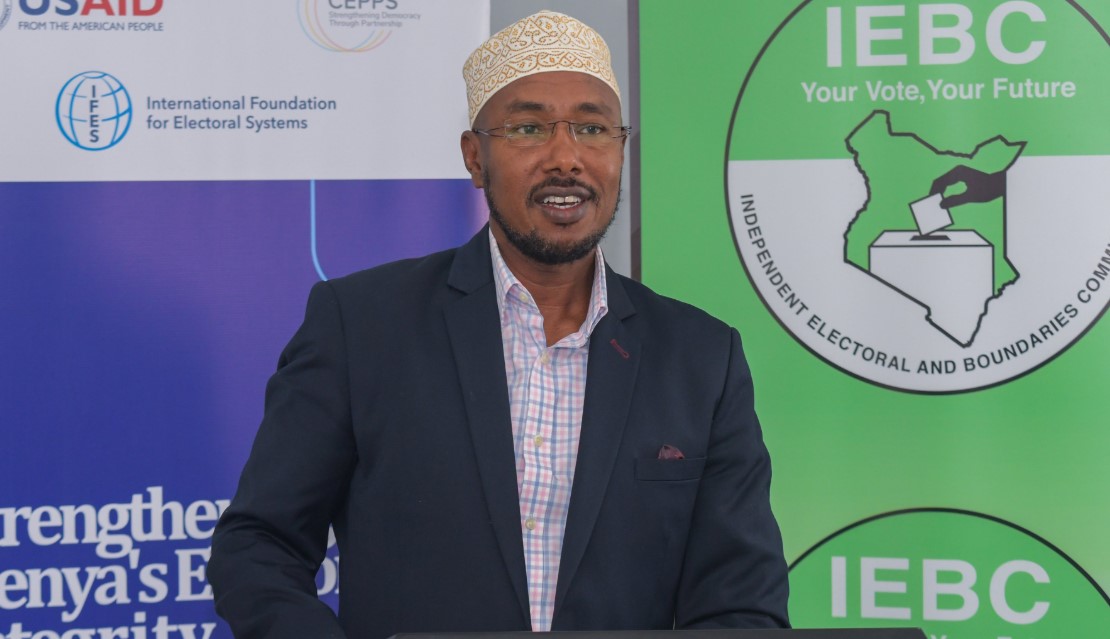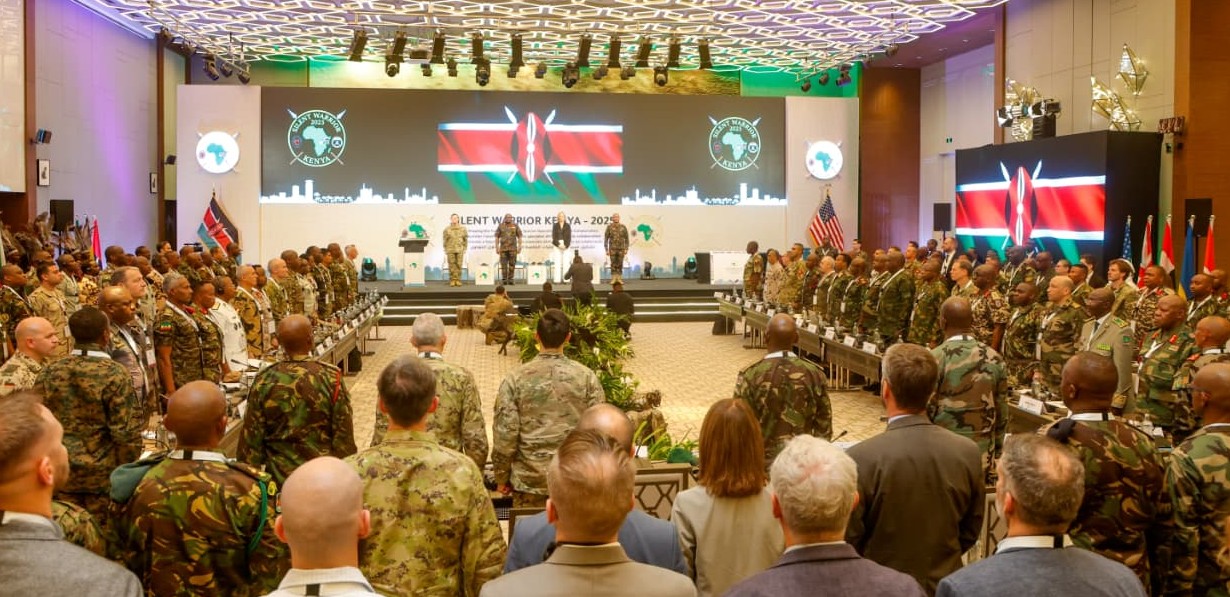IEBC proposes shared broadcast signal to restore trust in 2027 polls

IEBC CEO Marjan proposed the idea as a solution to the confusion that arose during the 2022 elections, when multiple media houses independently tallied results, leading to conflicting information and public uncertainty.
A shared broadcast signal for presidential election results could be key to restoring public trust ahead of the 2027 general election, according to Independent Electoral and Boundaries Commission (IEBC) CEO Marjan Hussein Marjan.
Speaking during a consultative meeting with media stakeholders in Nairobi, Marjan proposed the idea as a solution to the confusion that arose during the 2022 elections, when multiple media houses independently tallied results, leading to conflicting information and public uncertainty.
More To Read
- IEBC warns boundary review may spark community, religious and class tensions
- Court to hear petition challenging eligibility of Embu North MP Leo Wa Muthende
- Voters challenge Mbeere North MP Wamuthende’s victory over electoral name discrepancy
- IEBC blames police officers for by-election violence, maintains poll largely successful
- Why voter registration in by‑election zones will resume after 28 days
- IEBC gazettes Mbeere North’s MP-elect Wamuthende and other by-election winners
“Can we align better this time? Can we explore the possibility of a shared broadcast signal from a central results hub?” said Marjan. “These are some of the lingering questions we must confront. Misinformation and disinformation continue to spread rapidly across platforms, and we must address them head-on.”
Marjan emphasised that the media are not just observers of the electoral process but active participants whose role is central to upholding democratic integrity.
“You inform, you question, you hold us to account,” he said. “This is more than a meeting; it is a conversation to reconnect, reset, and renew a partnership vital to public trust and electoral integrity."
He acknowledged that while the 2022 election cycle saw milestones in media engagement, including the accreditation of nearly 6,000 journalists, real-time updates, media centre facilities, and journalist training, there were also significant challenges. These included disjointed results reporting, misinformation, disruptions at tallying centres, delayed accreditation, and limited reach of voter education campaigns due to budget constraints.
“One incorrect tweet can trigger panic. Fake news may sell, but it undermines democracy,” he said.
Speaking during the same forum, IEBC Chairperson Erastus Ethekon reaffirmed the Commission’s independence amid political pressure and early campaign rhetoric. “Going forward to 2027, I don’t think there will be vote stealing,” he said. “It is almost impossible. But if there are loopholes, point them out so we can seal them.”
Ethekon also confirmed that the Commission is working with the Attorney General to draft a law to curb early campaigns.
On her part, Kenya Editors Guild (KEG) president Zubeida Kananu supported the call for stronger collaboration between the IEBC and the media but expressed concern about rising political intolerance, hate speech, and the safety of journalists.
“We are deeply concerned about the escalating political intolerance—rallies being disrupted by hired goons, the normalisation of hate speech, and a troubling lack of accountability,” said Kananu. “This environment poses a serious threat to both our democracy and the safety of journalists. We call on the IEBC to speak out firmly and work closely with law enforcement to safeguard civic space.”
While acknowledging past progress, Kananu noted persistent challenges, including a lack of a centralised media tallying centre and limited resources in newsrooms, and called for action. “We must address these gaps now, not in the heat of the election,” she warned.
Top Stories Today












































